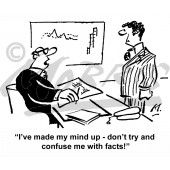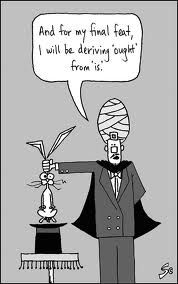
On CARM Fleetmouse does his thing with another post justifying reducing miracles to lost phenomena:
I've been trying to come up with a snappy name for the "I dunno, therefore God" kind of reasoning that goes on a lot in atheist / theist debates. Well, David Kyle Johnson has a good one: mysterium ergo magus:
[...] when one commits what I like to call the “Mysterium ergo magus” (“Mystery therefore Magic”) fallacy — it is to believe that an inability to think of a natural explanation is a good reason to appeal to a supernatural one.
from http://scientiasalon.wordpress.com/2...cience-part-i/
This is a favorite argument of theists - we can't fully explain something complex at the cutting edge of our fields of knowledge - consciousness, cosmology, etc. - therefore, this entitles us to "reach for the wand" - to appeal to magical and supernatural explanations. And of course, the supernatural explanations one reaches for will slot neatly into one's own religious views - Christians will not explain anything in terms of Hindu religion and vice-versa - it all seems to depend on where one was born.
However as Johnson continues in a note:
Having no proof that there is a natural explanation is no good reason to think that it is false that there is a natural one. Why? For one, we have made this mistake in the past — declaring, “nothing else can explain this but the supernatural,” only to find an embarrassingly obvious natural explanation latter. But mainly such reasoning is fallacious because it is more likely that the reason you can’t find a natural explanation is because you can’t think of one — not because there isn’t one.
How often do theists engage in the mysterium, ergo magus fallacy? I bet we can find ten posts in the last week. I can think of two examples regarding cosmology in one of my recent threads.
Also note that some will not drop magic even when there ARE solid naturalistic explanations - see the evolution board for examples.

This is just the circular reasoning that atheists always use to dismiss SN and miracle claims and anything to do with God. It's just moving the goal post when the evidence is met.
It's nothing more than "we have always dismissed this i the past so we are justified in doing so now."
just the typical atheist quesiton begging gimmick. Find a label to stick on it and it's done away. one of the classic moves of philosophical reductionism, re-label it as a prelude to losing the phenomena.
the whole move is right out of the reductionist play book because it's just a means of losing phenomena. whatever happens we can label as false in some flashy way and that is justified by past labeling. then it's automatically gone because it's now this gimmick rather than a miracle or whatever.
All of this relates back to anti-phenomenaoloyg. Pehom would allow the sense data to suggest it's own categories. The opposite of that reaches for the preconceived categories to file the phenomena away under so it wont be bothersome.
Originally Posted by fleetmouse

You are doing more than that. When you give it a little label you are saying we can move the goal post. If you meet the requriement I set up then I'll just claim this is a case X (whatever the label is) and move goal post again.
No comments:
Post a Comment